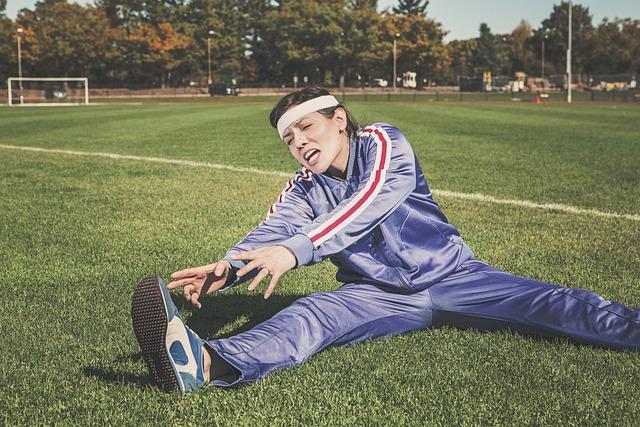As the NCAA prepares to phase out its widely scrutinized “free year” of eligibility granted during the COVID-19 pandemic, parents of spring-sports freshmen are urging the organization to reconsider. Representing athletes caught in the transition, these families argue that their children-newcomers to collegiate sports-have been overlooked in the eligibility extension debate. With seasons disrupted and opportunities limited, they are calling on the NCAA to extend the extra year to ensure fairness and safeguard the futures of the class of student-athletes navigating unprecedented challenges.
Parents of Spring Sports Freshmen Urge NCAA to Address Eligibility Challenges Amid Pandemic Disruptions
Families of freshmen set to participate in spring sports are increasingly vocal about the NCAA’s current eligibility policies, which many argue fail to accommodate the unique disruptions caused by the pandemic. These parents highlight how inconsistent schedules, canceled seasons, and limited practice opportunities have placed their children at a competitive disadvantage compared to other classes. They are pressing the NCAA to consider an additional free year of eligibility specifically for the “pandemic class,” ensuring these athletes are not penalized for circumstances beyond their control.
Among the key concerns raised are:
- Lack of uniformity in season lengths: Numerous spring sports teams faced abbreviated or postponed schedules, leading to fewer chances to compete.
- Unequal access to training facilities: Restrictions varied widely by region, affecting athlete preparedness and development.
- Academic interruptions: Remote learning challenges have compounded athletes’ stress, impacting both performance and eligibility maintenance.
| Challenge | Impact | Proposed NCAA Response |
|---|---|---|
| Cancelled Competitions | Reduced game experience | Grant additional eligibility year |
| Restricted Practice Time | Delayed athlete development | Flexible training allowances |
| Remote Learning | Academic and eligibility challenges | Academic support provisions |
Families Highlight Academic and Athletic Setbacks Impacting Incoming College Athletes
As universities gear up to welcome fresh faces for spring sports, families are sharing concerns that the most recent cohort of incoming athletes has faced unprecedented academic disruptions and athletic interruptions. Many parents argue that these student-athletes have been unfairly disadvantaged by the pandemic’s timing, leaving them caught between outdated eligibility rules and a landscape drastically altered by last-minute cancellations. The repercussions extend beyond mere game cancellations; they encompass lost training opportunities, missed recruitment events, and a disjointed academic calendar that many believe warrants an extension of the NCAA’s free eligibility year.
Voices from across the community highlight critical issues such as:
- Interrupted skill development and conditioning periods during pivotal preparatory months
- Psychological strain stemming from uncertainties about scholarships and playing time
- Inconsistent academic schedules complicating eligibility tracking and progress
| Impact Area | Consequences | Family Requests |
|---|---|---|
| Practice Time | Reduced by 40% | Extended eligibility to compensate |
| Recruitment Events | Nearly all canceled | Special consideration for scouting |
| Academic Progress | Irregular term structures | Flexible credit requirements |
Parents are urging the NCAA to recognize this unique set of setbacks by granting an additional free year of eligibility specifically tailored for spring-sports freshmen, a proposal designed to level the playing field and ease the transition into collegiate athletics. The call reflects a growing acknowledgment that a one-size-fits-all approach no longer suffices in the aftermath of ongoing disruptions, and that policy adjustments are essential to safeguard the future of these student-athletes.
Advocates Recommend Extending NCAA Free Year to Support Student-Athletes Navigating Unprecedented Transitions
In response to the ongoing challenges faced by student-athletes entering collegiate spring sports during a time marked by unprecedented disruptions, parents and advocates are urging the NCAA to extend its free year of eligibility. This extension would offer much-needed flexibility for freshmen who found themselves caught in limbo amid canceled seasons, transfer uncertainties, and evolving NCAA policies. Parents argue that these athletes deserve additional time to develop their skills and academic standing without the pressure of losing a year of eligibility during such a formative period.
Supporters emphasize several key reasons for this recommendation:
- Mitigating the impact of interrupted training and competition schedules that have hindered athletic development.
- Ensuring equitable access to scholarship opportunities despite the chaotic transition between high school and college sports seasons.
- Addressing mental health concerns linked to uncertain athletic futures and academic disruptions.
| Challenge | Impact on Student-Athlete |
|---|---|
| Season Cancellations | Lost competitive experience |
| Scholarship Limitations | Reduced financial support |
| Policy Changes | Eligibility confusion |
| Transfer Restrictions | Limited mobility |
Wrapping Up
As discussions around eligibility and athlete compensation continue to evolve, parents of spring-sports freshmen remain vocal in urging the NCAA to consider extending the free year of eligibility to their children-athletes they say have been uniquely impacted by the pandemic’s disruption. Whether the governing body will respond to these appeals remains to be seen, but the debate underscores the broader challenges facing collegiate sports as they navigate unprecedented circumstances and strive for equitable solutions.





